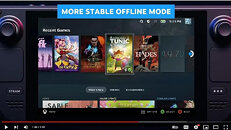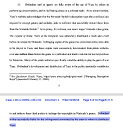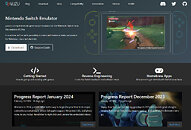T0@st
News Editor
- Joined
- Mar 7, 2023
- Messages
- 2,780 (3.68/day)
- Location
- South East, UK
| System Name | The TPU Typewriter |
|---|---|
| Processor | AMD Ryzen 5 5600 (non-X) |
| Motherboard | GIGABYTE B550M DS3H Micro ATX |
| Cooling | DeepCool AS500 |
| Memory | Kingston Fury Renegade RGB 32 GB (2 x 16 GB) DDR4-3600 CL16 |
| Video Card(s) | PowerColor Radeon RX 7800 XT 16 GB Hellhound OC |
| Storage | Samsung 980 Pro 1 TB M.2-2280 PCIe 4.0 X4 NVME SSD |
| Display(s) | Lenovo Legion Y27q-20 27" QHD IPS monitor |
| Case | GameMax Spark M-ATX (re-badged Jonsbo D30) |
| Audio Device(s) | FiiO K7 Desktop DAC/Amp + Philips Fidelio X3 headphones, or ARTTI T10 Planar IEMs |
| Power Supply | ADATA XPG CORE Reactor 650 W 80+ Gold ATX |
| Mouse | Roccat Kone Pro Air |
| Keyboard | Cooler Master MasterKeys Pro L |
| Software | Windows 10 64-bit Home Edition |
Game File reporter, Stephen Totilo, has discovered a new Nintendo-filed legal document—the Japanese multinational video game company's North American office is ready to do battle (in court) with Tropic Haze. The latter's Yuzu Switch Emulator is the focus of Nintendo's legal case—initiated on February 26, at the United States District Court for the District of Rhode Island. Totilo's social media summary of goings-on stated: "Nintendo is suing the creators of popular Switch emulator Yuzu, saying their tech illegally circumvents Nintendo's software encryption and facilitates piracy. Seeks damages for alleged violations and a shutdown of the emulator." The Dolphin Emulator—a Gamecube and Wii emulation platform—was removed from Valve's Steam store last year, following the sending of a Digital Millennium Copyright Act (DMCA) takedown order, but its development team was not pursued in US courts. The House of Mario is reportedly fiercely protective of its intellectual properties and technologies—gaining a hard-nosed reputation for engaging in plenty of legal action over decades past.
Nintendo's federal-level lawsuit alleges that Tropic Haze's Yuzu Switch Emulator played a large part in widespread illegal distribution of a 2023 flagship game title. They believe that "The Legend of Zelda: Tears of the Kingdom" was pirated over one million times in a time period prior to its official launch on Switch consoles, while Yuzu's Patreon funding almost doubled within the same cycle. Nintendo stated (through filed documentation): "With Yuzu in hand, nothing stops a user from obtaining and playing unlawful copies of virtually any game made for the Nintendo Switch, all without paying a dime to Nintendo or to any of the hundreds of other game developers and publishers making and selling games for the Nintendo Switch...In effect, Yuzu turns general computing devices into tools for massive intellectual property infringement of Nintendo and others' copyrighted works." They argue that Yuzu is capable of circumventing the Switch console's many layers of encryption—Tropic Haze's software, in their opinion, is "primarily designed" to break Switch software protections.




The Verge asked Richard Hoeg—a business attorney—about Nintendo's latest legal case: "The important thing is that Nintendo is bringing the case as a DMCA circumvention claim," says Hoeg, who hosts the Virtual Legality podcast. He tells me that that while emulators are broadly legal if engineered "correctly," the DMCA also lets Nintendo focus on whether the emulator was only designed to break Nintendo's control over its games. 'There is a real chance for them to win as the court 'tests' things like the effectiveness of the measure and just how the emulator was created," Hoeg says."
View at TechPowerUp Main Site | Source
Nintendo's federal-level lawsuit alleges that Tropic Haze's Yuzu Switch Emulator played a large part in widespread illegal distribution of a 2023 flagship game title. They believe that "The Legend of Zelda: Tears of the Kingdom" was pirated over one million times in a time period prior to its official launch on Switch consoles, while Yuzu's Patreon funding almost doubled within the same cycle. Nintendo stated (through filed documentation): "With Yuzu in hand, nothing stops a user from obtaining and playing unlawful copies of virtually any game made for the Nintendo Switch, all without paying a dime to Nintendo or to any of the hundreds of other game developers and publishers making and selling games for the Nintendo Switch...In effect, Yuzu turns general computing devices into tools for massive intellectual property infringement of Nintendo and others' copyrighted works." They argue that Yuzu is capable of circumventing the Switch console's many layers of encryption—Tropic Haze's software, in their opinion, is "primarily designed" to break Switch software protections.




The Verge asked Richard Hoeg—a business attorney—about Nintendo's latest legal case: "The important thing is that Nintendo is bringing the case as a DMCA circumvention claim," says Hoeg, who hosts the Virtual Legality podcast. He tells me that that while emulators are broadly legal if engineered "correctly," the DMCA also lets Nintendo focus on whether the emulator was only designed to break Nintendo's control over its games. 'There is a real chance for them to win as the court 'tests' things like the effectiveness of the measure and just how the emulator was created," Hoeg says."
View at TechPowerUp Main Site | Source

 The idiots should've just NOT mentioned the emulator directly in their .NFOs and they would've not gotten them in trouble.
The idiots should've just NOT mentioned the emulator directly in their .NFOs and they would've not gotten them in trouble.





